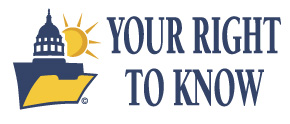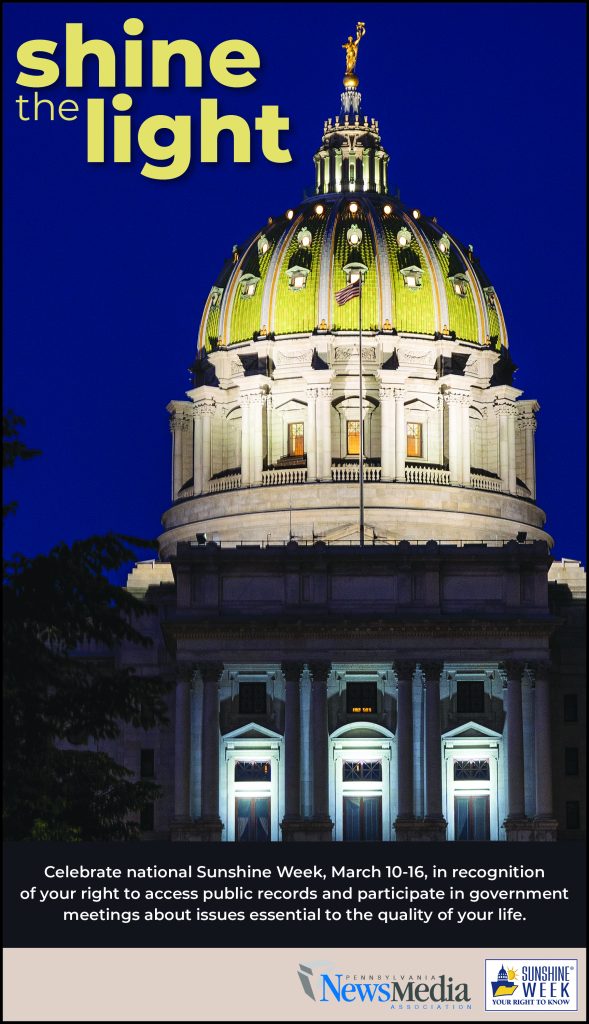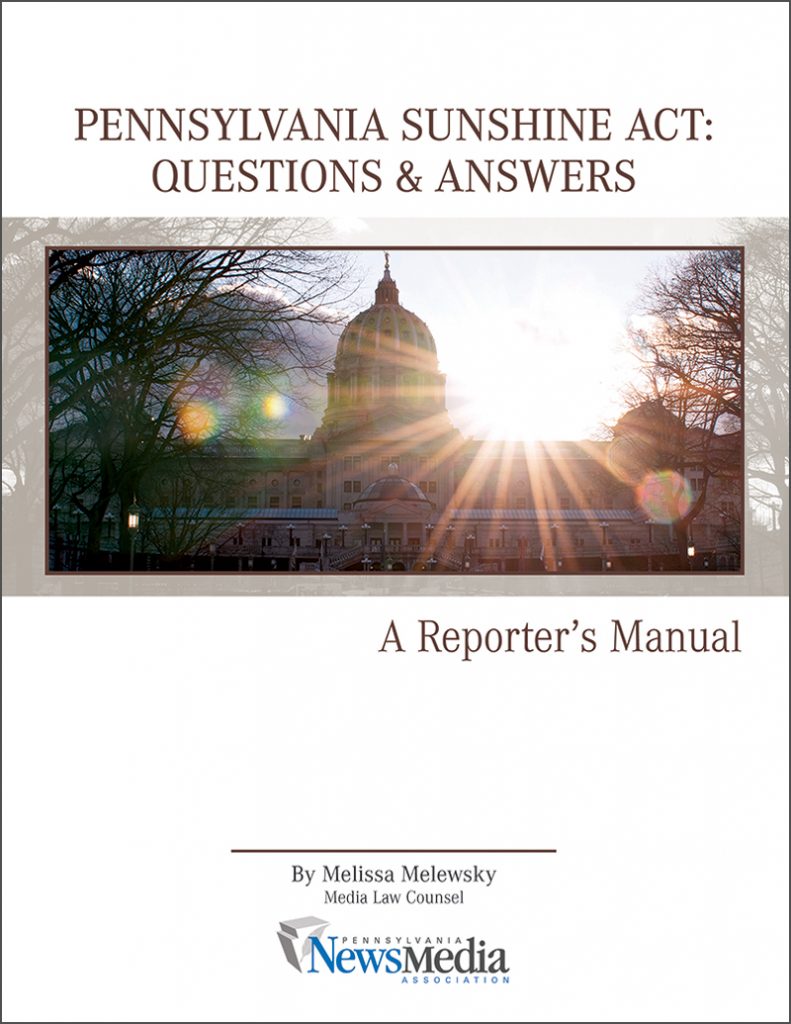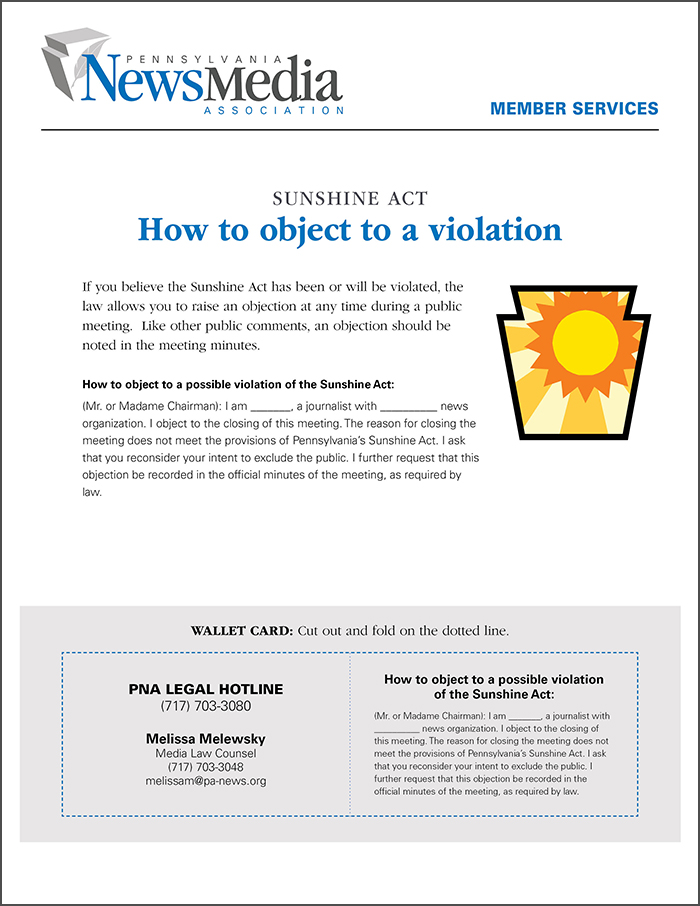Sunshine Week
March 10-16, 2024
 Each year in March, news media organizations across the country take this time to highlight the importance of transparency in our government, and we underscore the vital work our journalists do to fight for access to records that shed light on government activity.
Each year in March, news media organizations across the country take this time to highlight the importance of transparency in our government, and we underscore the vital work our journalists do to fight for access to records that shed light on government activity.
Throughout the year, PNA continues to advocate, on your behalf, for more access to essential information from all levels of government. We remain focused on the Right-to-Know Law and related transparency issues as well as ensuring that public notices remain in newspapers of general circulation.
Check back for more information about Sunshine Week events in Pennsylvania. In the meantime, visit The Joseph L. Brechner Freedom of Information Project at the University of Florida College of Journalism and Communications, which serves as the national coordinator for this public awareness campaign.
Sunshine Week Ad Campaign
SHINE THE LIGHT
PNA has prepared a promotional campaign in celebration of Sunshine Week from March 10-16. This campaign includes print and digital ads. Complete the form below to access the ads.
Sunshine Week 2024 Ad Campaign

Sunshine Week Op-Eds
Sunshine Week Events
Sunshine Week Summit
March 13 | 9 a.m. – noon
The State Archives
Join us as we recognize Sunshine Week, a national celebration of government transparency laws throughout the country. We’ll review updates to Pennsylvania’s open meetings and open records laws as well as hear from all the Office of Open Records executive directors.
Open Records and Open Meetings
March 14 | 9:30 a.m. – 11:30 a.m.
University of Pittsburgh School of Law
To celebrate sunshine week, the PBA Press Committee and Pitt Law present, Open Records and Open Meetings. This two hour program will cover basics on Pennsylvania’s Right-to-Know, Act 22, and the Sunshine Act.
Sunshine Week: Open Records and Meetings Updates
March 15 | 11 a.m. – 2 p.m.
LNP | Lancaster Online
This training session features a panel of seasoned attorneys from Lancaster and beyond. The panel will provide in-depth insights into the Right to Know Law (RTKL), including which agencies are subject to it, the functions of the Office of Open Records, and differences in public records cases involving law enforcement records. Additionally, the panelists will review updates to the open meetings law, known as the Sunshine Act.
Resources
What are the Sunshine Act and Right-to-Know Law?
 The Sunshine Act and Right-to-Know Law are Pennsylvania’s primary public access laws. These laws guarantee the public’s right to access government information at public meetings and through public records. Public access to meetings and records is fundamental to the public’s ability to understand government actions and hold government officials accountable.
The Sunshine Act and Right-to-Know Law are Pennsylvania’s primary public access laws. These laws guarantee the public’s right to access government information at public meetings and through public records. Public access to meetings and records is fundamental to the public’s ability to understand government actions and hold government officials accountable.
The Sunshine Act
The Sunshine Act applies to public agencies, which include Pennsylvania executive branch agencies, the General Assembly, and municipal authorities, such as township boards of supervisors and local school boards. The Act requires agencies to hold public meetings any time a quorum deliberates agency business or takes official action. As with many laws, there are exceptions to the public meeting requirements of the Sunshine Act, but the law begins with a statement of intent, stressing the right of the public to witness the decision-making process to ensure that the democratic process functions properly.
The Right-to-Know Law
The Right-to-Know Law applies to executive branch agencies and local agencies, including school districts, townships, other municipalities, and authorities. The law also applies on a limited basis to the General Assembly and to the court system’s financial records. The law begins with the presumption that records in the possession of government agencies are public records and must be provided within the framework of the law. There are exemptions to the law that allow agencies to deny public access, but the law places the burden of proof on an agency to show why a requested record is not public.




